Our collaborators work in many genres, and come from various teaching and writing backgrounds or areas of research and expertise. How they collaborate with TESS is up to them. Some will co-teach, some will provide material for us to read, then visit a studio for a Q&A. Some will advise or host studios or help spread the word to other colleagues and departments. What we share is idea that storytelling is critical to understanding our planet and our lives.
Because their biographies and CVs are FILLED with awards, publications, fellowships, and praise, we are unable to list many of this attributes on this page. If you’d like to learn more about their work and accomplishments, please visit their personal websites, linked in their bios below. Or better yet, buy their books at your local bookstore or from Bookshop.org or attend their events or follow them on social media channels.
TESS would not be possible without their talent, kindness, and generosity.
-

Kerri Arsenault
Kerri is director and founder of TESS, a literary critic, part of the teaching ensemble at The New School of the Anthropocene, and author of Mill Town: Reckoning with What Remains. Her writing has been published in the Boston Globe, The Paris Review, the New York Review of Books, Freeman’s, the Washington Post, and the New York Times.
Photo: Erik Madigan Heck
-

Cory Beizer
Cory is Kerri’s partner at TESS, and a writer whose work focuses on stories strong and true enough to hold the climate crises and other great complexities in their bindings. As a recent graduate of Harvard, Cory studied English and Environmental Science, and is now working on a collection of climate fiction that is derived from his thesis. Cory has a forthcoming piece in The Common.
-
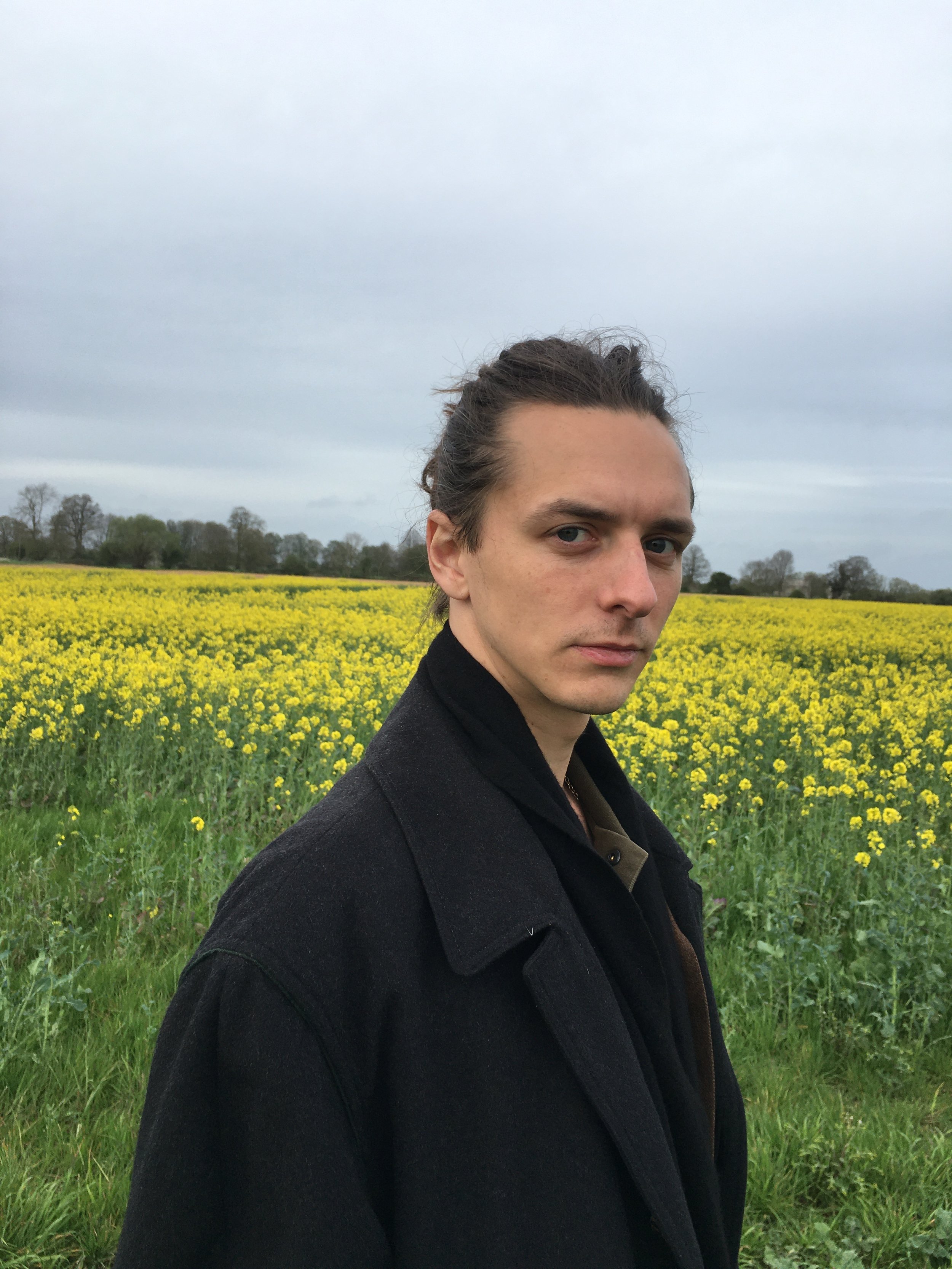
Robert Newton
Robert’s research focuses on the ecological and cultural legacies of synthetic materials. He has published articles in FrankNews andStill Point. In 2019, he presented papers at the literary studies symposium Flotsam and Jetsam, and at The Social Life of Plastics, an interdisciplinary conference hosted by the Cambridge Centre for Circular Economy. In 2020, he co-convened the conference Climate Fictions / Indigenous Studies, which offered researchers from across the world a space in which to hold multidisciplinary conversations on climate crisis and colonialism as represented in Indigenous literatures. He currently works as a policy analyst in the renewable energy industry.
-

David Abel
David is a reporter, documentary filmmaker, and professor of journalism. He has covered war in the Balkans, unrest in Latin America, national security issues in Washington D.C., terrorism in New York and Boston, and climate change and poverty throughout New England. A longtime reporter at The Boston Globe, Abel is also a professor of the practice in the journalism department at Boston University.
-

Elissa Altman
Elissa is an author whose works of literary memoir, essay, and food narrative, emerge from the place where sustenance, the power of the human spirit, and the promise of renewal converge. She is the author of the memoirs Motherland, Treyf, Poor Man’s Feast, and On Permission (forthcoming, 2025).
-

Rebecca Altman
Rebecca is a writer and sociologist whose work explores the social history of plastics, pollution and environmental legacy— what we pass from one generation to the next. She currently serves on the Board of Directors of the Science and Environmental Health Network. Her work has been published by Science, The Atlantic, The Washington Post, Aeon Magazine and Orion Magazine.
-

Kathryn Belden
Kathryn is Senior Vice President and Editorial Director at Scribner. She is interested in the breadth of the American experience, which she pursues through fiction and nonfiction acquisitions. Previously she worked at Bloomsbury, Four Walls Eight Windows, and Harmony Books/Crown Publishers.
-

Lyndsie Bourgon
Lyndsie is a writer, oral historian, Fellow of the Royal Canadian Geographical Society, and National Geographic Explorer. Her writing focuses on the environment and its entanglement with history, culture, and identity. Her feature stories have appeared in The Atlantic, the Guardian and Smithsonian magazine.
-

Jessica Bruder
Jessica is a writer specializing in immersion journalism, with a focus on subcultures and social issues. She is the author of Nomadland, Burning Book and, with co-author Dale Maharidge, Snowden’s Box: Trust in the Age of Surveillance. Her work has been published in The Atlantic, Harper’s, The Washington Post, The Guardian, and The International The New York Times Magazine.
-

Sarah Burnes
Sarah began her career as an editor first at Houghton Mifflin, then in the Knopf Group, and last at Little, Brown. She became an agent in 2001, joining The Gernert Company in 2005. Sarah sits on the board of non-profit progressive publisher the New Press and her writing has appeared on The Paris Review’s blog.
-

Garnette Cadogan
Garnette is the Tunney Lee Distinguished Lecturer in Urbanism at the School of Architecture and Planning at MIT. His research and writing explores the promise and perils of urban life, the vitality and inequality of cities, and the challenges of pluralism.
-

Sam Carter
Sam is the Editorial Director for non-fiction at Oneworld Publications Limited, London. His book list spans history, popular science, nature, culture, current affairs, and general narrative non-fiction, written by great journalists, commentators, practitioners, academics, and excerpts for a broad audience.
-

Meehan Crist
Meehan is writer in residence in biological sciences at Columbia University, co-editor of What Future 2018, a founding member of NeuWrite, and the host of Convergence: a show about the future. Her work has appeared in publications such as the New York Times, the London Review of Books, The Atlantic, The Nation, Scientific American, and Science.
-

Bathsheba Demuth
Bathsheba is former co-director of TESS, and a writer and environmental historian specializing in the lands and seas of the Russian and North American Arctic. She is the Dean’s Associate Professor of History and Environment and Society at Brown University, and the author of Floating Coast: An Environmental History of the Bering Strait. Her writing has appeared in publications from The American Historical Review to The New Yorker and The Best American Science and Nature Writing.
-

Marcia DeSanctis
Marcia is a Contributing Editor at Travel + Leisure, and writes for the New York Times, Air Mail, Vogue, Town & Country, Departures, BBC Travel, Lit Hub, Lonely Planet, Roads & Kingdoms, and many other publications. A graduate of Princeton University and The Fletcher School of Law and Diplomacy, her most recent book is, Hard Place to Leave: Stories from a Restless Life.
-

Colin Dickerman
Colin is VP and editorial director for nonfiction at Grand Central Publishing. Dickerman held senior editorial and management positions at FSG, Bloomsbury, Penguin Press, and Macmillan’s Flatiron Books imprint, which he helped to launch.
-

Sarah Dimick
Sarah is jointly appointed in the Department of English and the Program in Environmental Policy and Culture at Northwestern University. Her research focuses on portrayals of climate change and environmental justice in contemporary global Anglophone literatures. Her first book, Unseasonable: Climate Change in Global Literatures examines how the environmental arrhythmias of an overheated world jar literary and cultural forms.
-

Marc Favreau
Marc is the editorial director of The New Press. He is a co-editor (with Ira Berlin and Steven F. Miller) of Remembering Slavery: African Americans Talk About Their Personal Experiences of Slavery and Emancipation and the editor of A People’s History of World War II: The World’s Most Destructive Conflict, as Told by the People Who Lived Through It, both published by The New Press.
-

Aminatta Forna
Aminatta holds the position of Director of the Lannan Center at Georgetown University and is a Professor of Creative Writing at Bath Spa University. Her work has appeared in Freeman’s, Granta, The Guardian, LitHub, The Nation, The New York Review of Books, The Observer and Vogue. She has written stories for BBC radio and written and presented television documentaries including “The Lost Libraries of Timbuktu” (BBC Television) and “Girl Rising” (CNN). In 2003 Aminatta established the Rogbonko Project to build a school in a village in Sierra Leone. The charity has also run a number of projects in the spheres of adult education, sanitation and maternal health. She is a Fellow of the Royal Society of Literature.
Photo: Nina Subin
-

John Freeman
John is the founder of the literary anthology, Freeman’s, and editor of The Penguin Book of the Modern American Short Story, and Tales of Two Americas, Tales of Two Cities and Tales of Two Planets. His own books include Dictionary of the Undoing, How to Read a Novelist, The Tyranny of E-mail: The Four-Thousand-Year Journey to Your Inbox, and three volumes of poetry, Maps, The Park, and Trees, Wind. His work has appeared in the New Yorker, the Paris Review, and the New York Times. He is an executive editor at Knopf.
-

Rebecca Friedman
Rebecca is founder of Friedman Literary, a full service agency, representing a wide-ranging list of fiction and non-fiction authors. She previously worked at Sandford Greenburger Associates and Sterling Lord Literistic before starting her own agency in 2013. Rebecca is interested in narrative non-fiction with an emphasis on scientific and journalistic non-fiction and literary fiction. Most of alll, she is looking for great stories told in strong voices.
-

Dr. Genevieve Guenther
Dr. Guenther is a former Renaissance scholar who turned to climate research and activism after having a child and becoming increasingly alarmed about the world her son could inherit after she died. She is now an expert in climate communication. Dr. Guenther founded End Climate Silence, a volunteer organization that pushes the news media to start talking about the climate crisis with the urgency it deserves. She recently published, The Language of Climate Politics: Fossil Fuel Propaganda and How to Fight It, and is an affiliate faculty at The New School, where she sits on the advisory board of the Tishman Environment and Design Center.
-

Heidi Hutner
Heidi is an associate professor of Literature, Sustainability, women's and gender Studies at Stony Brook University, and a scholar of nuclear and environmental history, literature, film, and ecofeminism. At SBU, Hutner chaired the Sustainability Studies Program for six years and was Associate Dean in the School of Marine, Atmospheric Science. Her book, Radioactive: The Women of Three Mile Island, is now a documentary streaming on platforms such as Apple, Amazon and screening across the country
-

Ferris Jabr
Ferris is the author of Becoming Earth: How Our Planet Came to Life and a contributing writer for The New York Times Magazine. He has also written for The New Yorker, The Atlantic, Harper’s, National Geographic, and Scientific American, among other publications. He is the recipient of a Whiting Foundation Creative Nonfiction Grant, as well as fellowships from MIT and UC Berkeley. His work has been anthologized in several editions of The Best American Science and Nature Writing series. He has an MA in journalism from New York University and a Bachelor of Science from Tufts University. He lives in Portland, Oregon with his partner, Ryan, their dog, Jack, and more plants than they can count. His surname rhymes with neighbor.
-

Lacy M. Johnson
Lacy is a professor, curator, activist, and is author of The Reckonings, The Other Side, and Trespasses. She is editor, with the graphic designer Cheryl Beckett, of More City Than Water: A Houston Flood Atlas. Her writing has appeared in The Best American Essays, The New Yorker, The New York Times, Orion, Paris Review, and elsewhere. She teaches creative nonfiction at Rice University and is the Founding Director of the Houston Flood Museum.
-

Kima Jones
Kima is the founder of Jack Jones Literary Arts and an agent at Triangle House Literary. Her debut, Butch, is forthcoming from Knopf.
-

Sarah Laskow
Sarah is a reporter, writer, and currently, the senior editor for science at The Atlantic. She writes often about plants, the politics of the environment and energy, cities, food, transportation, books, libraries, and medieval culture. Her work has appeared in The New York Times, NPR’s “All Things Considered,” New York, The New Republic, The Boston Globe, Smithsonian, Foreign Policy, Lucky Peach, and many other publications.
-

Jonathan Lethem
Jonathan is the author of eleven novels, five short story collections, and several nonfiction books, including Motherless Brooklyn, Brooklyn Crime Novel, and his most recent, Cellophane Bricks. He is presently the Roy E. Disney Professor in Creative Writing at Pomona College in Claremont, California, where he teaches creative writing and literature.
-

Robert Macfarlane
Robert is the author of books about nature, place and people including Underland, Landmarks, The Old Ways and (with artist Jackie Morris), The Lost Words, and The Lost Spells. His work is translated into 30 languages, and has been widely adapted for film, television, radio, stage and music. He is a Fellow of Emmanuel College, University of Cambridge.
-

Kelly McMasters
Kelly is an essayist, professor, mother, and former bookshop owner. She is the author of The Leaving Season: A Memoir-in-Essays and Welcome to Shirley: A Memoir from an Atomic Town, and co-editor of Wanting: Women Writing About Desire and editor of, This Is the Place: Women Writing About Home. She is currently an Associate Professor of English and Director of Publishing Studies at Hofstra University.
-

John H. McWhorter
John is an associate professor in the Slavic Department at Columbia University and teaches linguistics, philosophy, and music history. He is an author of more than twenty books including The Power of Babel: A Natural History of Language, Losing the Race: Self Sabotage in Black America and Our Magnificent Bastard Tongue: The Untold History of English, Nine Nasty Words and Woke Racism. He also writes a weekly column for The New York Times and hosts the language podcast Lexicon Valley.
-

Steve Mentz
Steve is Professor of English at St. John’s University in New York City who works in the blue humanities, Anthropocene theory, early modern literature, and eco-poetics. He is the author of seven books, and his most recent are, Sailing without Ahab: Ecopoetic Travels and An Introduction to the Blue Humanities. He is also editor or co-editor of seven collections, writes poetry, and curated an exhibition at the Folger Shakespeare Library, “Lost at Sea: The Ocean in the English Imagination, 1550 – 1750”.
-
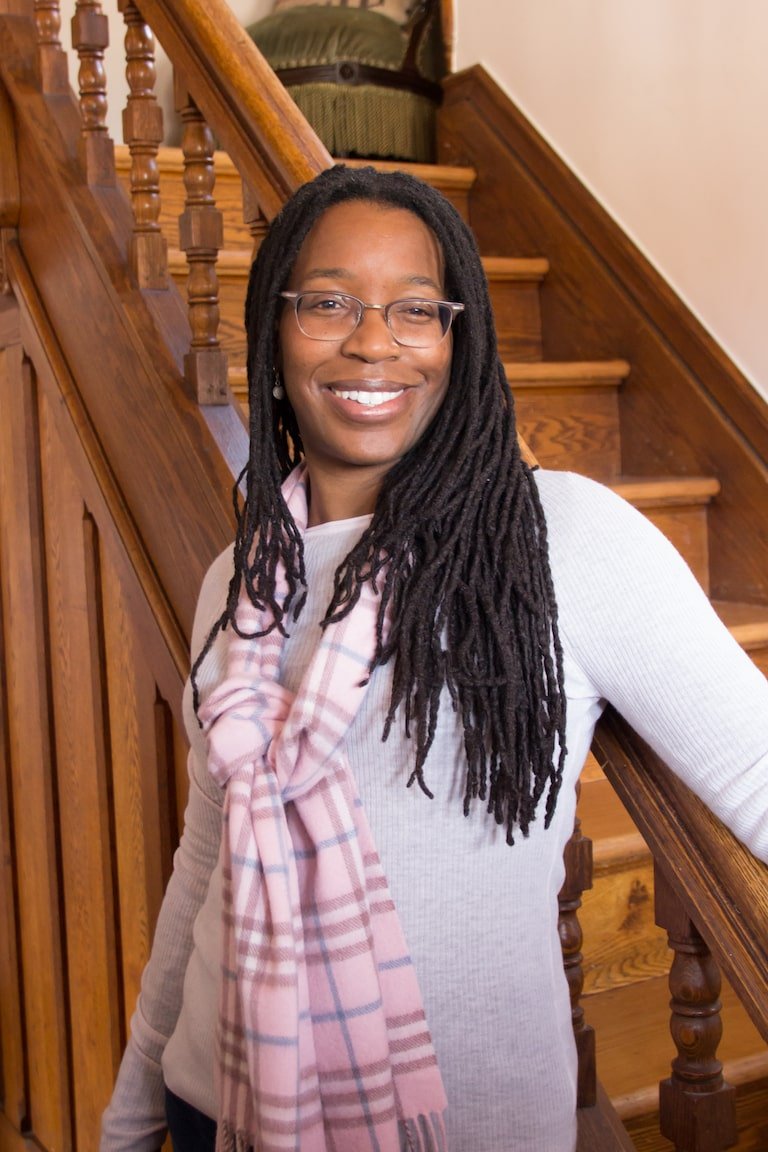
Tiya Miles
Tiya is a public historian, author, and the Michael Garvey Professor of History at Harvard University. She is the author of nine books about race, place, and family. Her most recent books are, Night Flyer: Harriet Tubman and the Faith Dreams of a Free People; and Wild Girls: How the Outdoors Shape the Women Who Challenged a Nation. She was also the founder and director of ECO Girls.
-

Elizabeth (Biz) Mitchell
Biz is an Executive Editor at HarperOne, editing narrative nonfiction, memoir, essays, investigative projects, self-help, and cultural and political histories. She was executive editor of John Kennedy Jr.’s George magazine, features editor at SPIN, and senior digital longform writer at the Daily News. She is also a journalist and the author of four nonfiction books.
-

Gregg Mitman
Gregg is the Vilas Research and William Coleman Professor of History, Medical History, and Environmental Studies at the University of Wisconsin–Madison and Guest Research Professor at LMU’s Rachel Carson Center for Environment and Society in Munich. He is an award-winning author, filmmaker, and teacher, whose interests span the history of science, medicine, and the environment in the United States and the world and include a commitment to environmental and social justice.
-

Anne Elizabeth Moore
Anne is the author of ten works of creative nonfiction including Body Horror: Capitalism, Fear, Misogyny, Jokes, and Gentrifier: A Memoir. She has received an Eisner Award, two Fulbrights, and funding from the NEA and NYSCA. She has written for The Guardian, Paris Review, The Baffler, The Nation, and others. In addition, Anne writes about chronic illness and disability.
-

Sumanth Prabhaker
Sumanth is the Editorial Director at Amherst College and editor-at-large for Orion magazine. He is the founder of two nonprofit literary organizations: Madras Press, a charitable publisher whose catalog includes work by Aimee Bender, Donald Barthelme, Lydia Davis, and David Foster Wallace; and Migrant Books, a pop-up bookstore for international children’s literature.
-
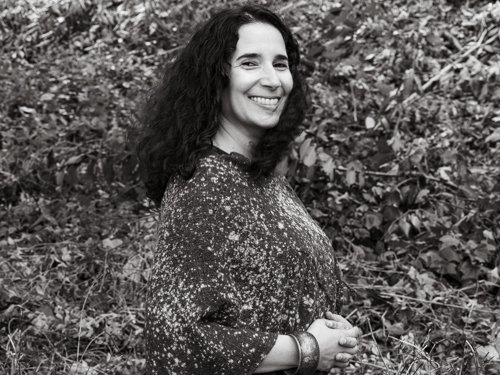
Emily Raboteau
Emily writes at the intersection of social and environmental justice, race, climate change, and parenthood. Her most recent book is Lessons for Survival: Mothering Against "the Apocalypse". She’s a regular contributor to the New York Review of Books, a contributing editor at Orion Magazine, and a Black Studies professor at CUNY.
Photo: Rachel Eliza Griffiths
-

Anjulie Rao
Anjulie is a journalist and critic covering the built environment. She is the recipient of two Graham Foundation Grants and a faculty lecturer at the School of the Art Institute of Chicago, and previously taught at the University of Illinois Chicago and Illinois Institute of Technology. She has written for ARCHITECT magazine, Dwell, Bloomberg, The Architect's Newspaper, The Architectural Review, The New York Review of Architecture, and Landscape Architecture Magazine.
-

Hilary Redmon
Hilary is Vice President, Executive Editor at Random House. She publishes narrative and journalistic nonfiction with a concentration on books about science, natural history, systemic injustice, memoir, philosophy, American history, and books that blend these categories in compelling ways.
-
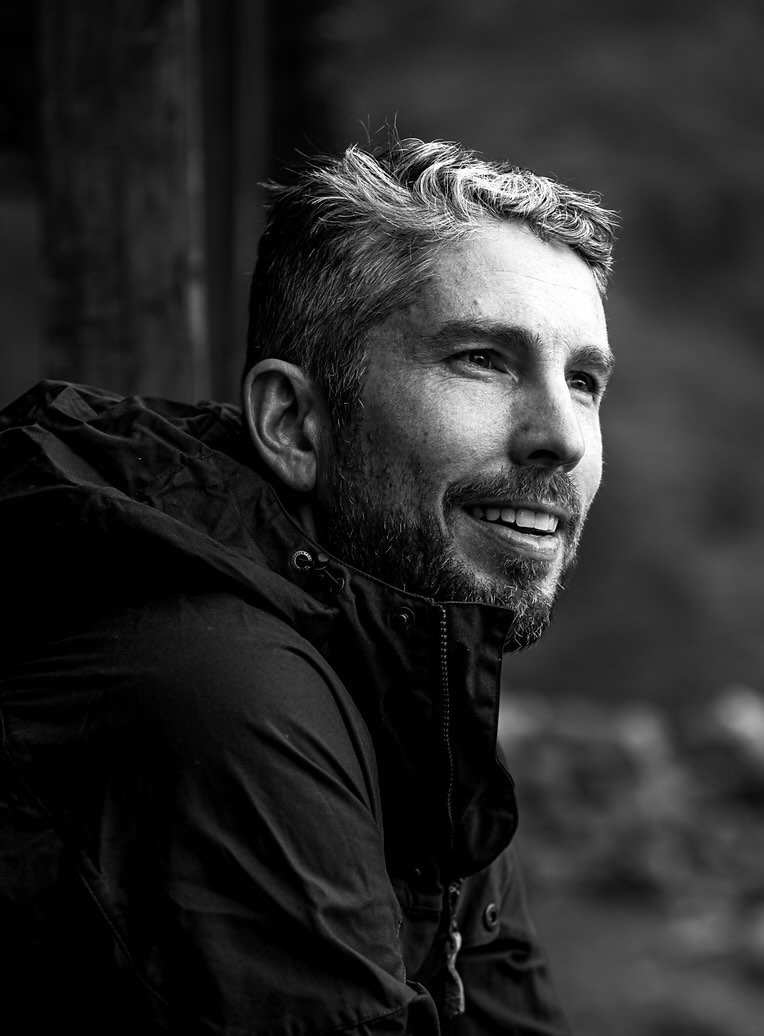
Lance Richardson
Lance is a co-teacher at TESS and finishing a biography, True Nature The Pilgrimage of Peter Matthiessen, which was eight years in the making and will be published in September 2025. He is also the author of House of Nutter: The Rebel Tailor of Savile Row, currently being adapted for TV. Lance holds a masters degree in longform journalism from the Arthur L. Carter Journalism Institute, NYU. He teaches in the MFA in Writing at Bennington College, Vermont.
-

Monique Roffey
Monique is a Trinidadian-born British writer and environmental activist. She has written six novels and a memoir, which includes a trilogy of novels that engage with the political and environmental issues of Trinidad and the Caribbean region. Currently a Professor of Contemporary Literature at Manchester Metropolitan University and a Fellow of the Royal Society of Literature, Monique co-founded Writers Rebel, a chapter of Extinction Rebellion.
-
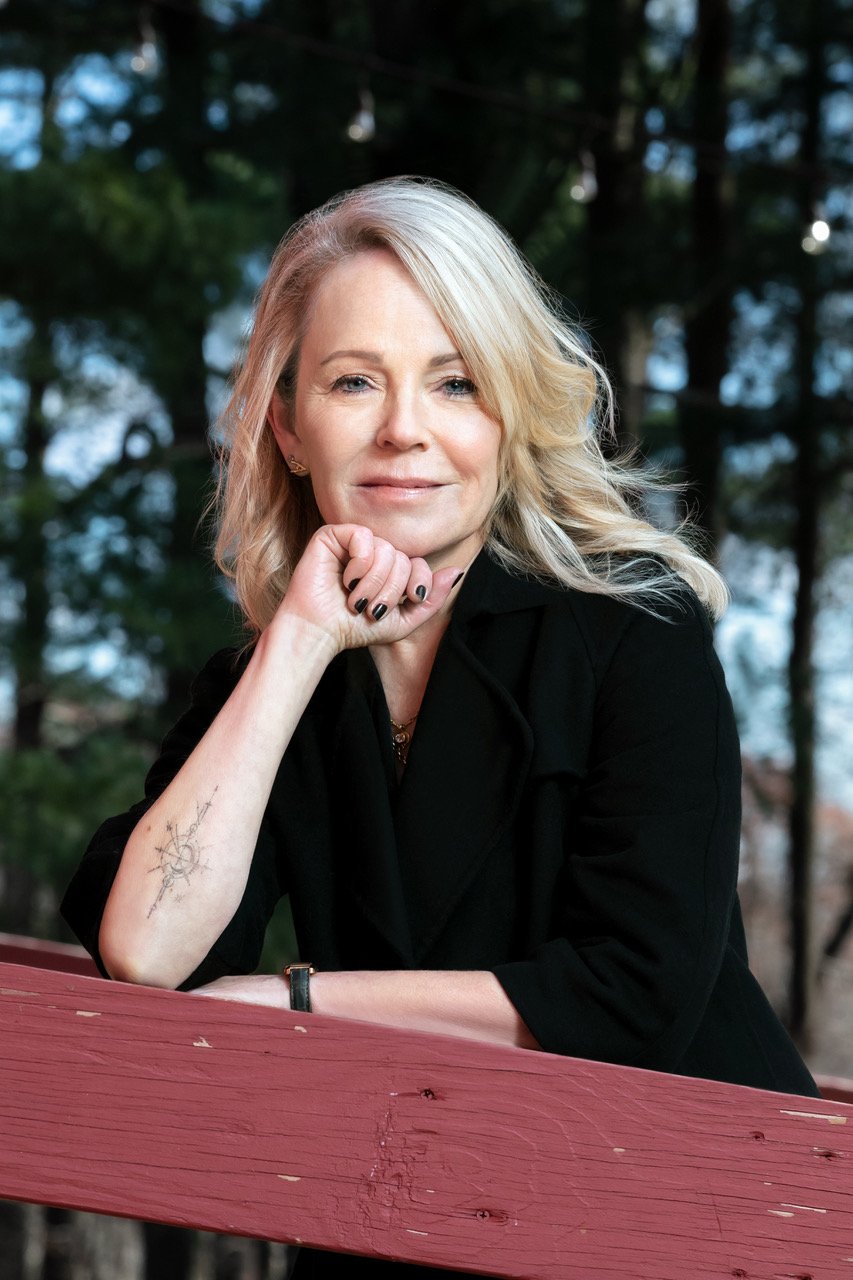
Dani Shapiro
Dani is the author of eleven books, and is the host and creator of the hit podcast Family Secrets. Her most recent novel is Signal Fires and her work has been published in fourteen languages. She occasionally teaches workshops and retreats, and is the co-founder of the Sirenland Writers Conference in Positano, Italy.
-

Jeff Sharlet
Jeff is the Frederick Sessions Beebe '35 Professor in the Art of Writing at Dartmouth College. He is the author or editor of eight books, including The Family and C Street, and executive produced the 2019 Netflix five-part documentary series based on them. He is a contributing editor for Vanity Fair and editor-at-large for VQR and is or has been a contributing editor for Vanity Fair, Harper's and Rolling Stone, and a contributor to publications including The New York Times Magazine, GQ, Esquire, Mother Jones, Bookforum, and others.
-

Katherine E. Standefer
Katherine is the author of Lightning Flowers: My Journey to Uncover the Cost of Saving A Life. Her work has been published in The New York Times, The Los Angeles Times, The High Country News, Virginia Quarterly Review, New England Review, The Iowa Review, Kenyon Review Online, and more. Standefer earned her MFA in Creative Nonfiction from the University of Arizona in 2014. She taught at Colorado College, Ashland University’s Low-Residency MFA Program and in the undergraduate creative writing program at the University of Arizona, as well as at literary centers, libraries, and conferences across the USA.
-

Tory Stephens
Tory is a resource generator and community builder for social justice issues, people, and movements. Tory currently works at Grist’s solutions lab, as their network weaver and climate fiction creative manager. As the creative manager of Imagine 2200, Fix’s climate-fiction initiative, he uses storytelling to champion climate justice, and imagine green, clean and just futures.
-

Pitchaya Sudbanthad
Pitchaya is the author of the novel Bangkok Wakes to Rain. His short stories and essays have been published in Esquire, The New Yorker, Orion, Freeman's, Newsweek, among other publications.
-

Morgan Talty
Morgan is a citizen of the Penobscot Indian Nation where he grew up. He is the author of the story collection Night of the Living Rez and the novel, Fire Exit. Morgan is an Assistant Professor of English in Creative Writing and Native American and Contemporary Literature at the University of Maine, Orono, and he is on the faculty at the Stonecoast MFA in creative writing as well as the Institute of American Indian Arts. Talty is also a Prose Editor at The Massachusetts Review.
-

Jeff VanderMeer
Jeff is the author of Hummingbird Salamander; the Borne novels; and the Southern Reach series. Environmental nonfiction by VanderMeer has appeared in Time, The Nation, Current Affairs, and Esquire, among others. VanderMeer founded the Sunshine State Biodiversity Group nonprofit in 2023. Forthcoming work includes Absolution, a fourth Southern Reach novel.
-

Laura van Straaten
Laura is a former network TV news producer and is a veteran journalist who contributes features to The New York Times, The Wall Street Journal Magazine, New York and many of the top culture publications in the U.S and abroad. She is also a mentor-editor who privately coaches academics and non-profit leaders to develop thought leadership and to write for broad audiences. She is a graduate of Bryn Mawr College and Columbia University's Graduate School of Journalism.
Photo: Lynn Savarese
-

Jessica Varner
Jessica is a professor, environmental historian, and anti-toxics community advocate. Her first book-in-progress, Chemical Desires, uncovers the ties between corporate chemical firms and building materials at the turn of the twentieth century. She is an Assistant Professor at the University of Pennsylvania (Weitzman, Department of Landscape), and she helps lead the non-profit EDGI (Environmental Data & Governance Initiative) around environmental Right-to-Know issues.
Photo: Sarah Cal
-

John Vercher
John’s work focuses on race, identity, and family, and he has published three novels. Devil Is Fine is his latest book. John is the artist-in-residence at Monmouth University and a former Assistant Professor at Drexel University. He also teaches in the low-res MFA at Randolph College. He's also been published by Cognoscenti, the thoughts and opinion page of NPR affiliate WBUR Boston, and his essays have also appeared in Men’s Health, LitHub, CrimeReads, Booklist, and Entropy.
-

Matt Weiland
Matt is a vice president and senior editor at W. W. Norton & Company, the independent and employee-owned publisher in New York. At Norton, he edits both nonfiction and fiction. Weiland previously worked as an editor at Ecco, Granta Books, The New Press, and Columbia University Press, as well as at the literary magazines Granta, The Paris Review, and The Baffler.
-

Tom Zoellner
Tom is the author of nine nonfiction books. His most recent is Island on Fire: The Revolt that Ended Slavery in the British Empire. Tom's environmental journalism has appeared in The New York Times, The Wall Street Journal, Foreign Policy, Orion, Sierra, High Country News, Audubon, Arizona Highways, and many other places. He works as a professor at Chapman University and as an editor-at-large for the Los Angeles Review of Books.
